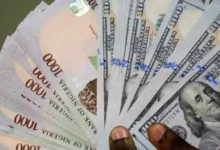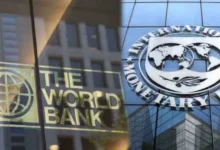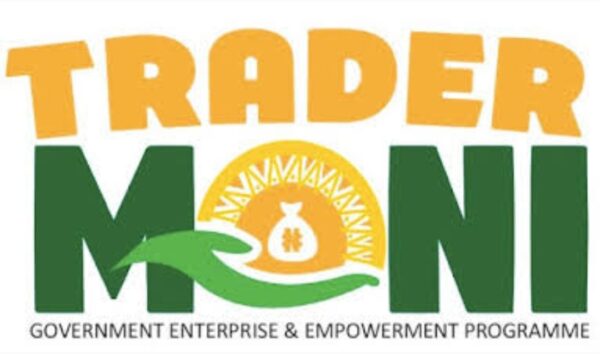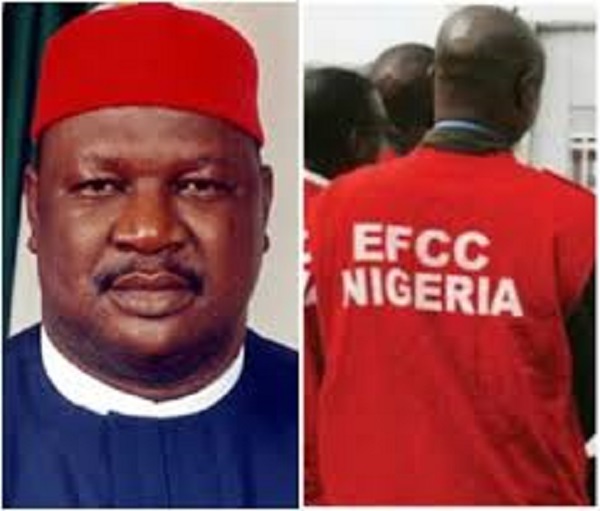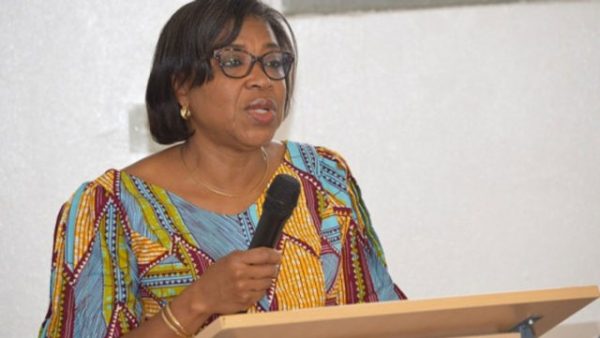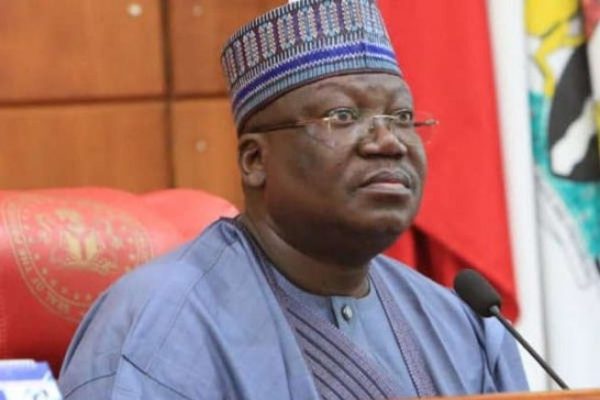FG, PDP clash as economy grows by 3.4%, highest in seven years
The Federal Government and the Peoples Democratic Party on Thursday exchanged words over a report by the National Bureau of Statistics in which it was stated that Nigeria’s Gross Domestic Product grew by 3.4 per cent in 2021-the highest in seven years.
The GDP report, released by the National Bureau of Statistics on Thursday, also showed that the economy weakened further in the fourth quarter of 2021, after recording a decline in the third quarter of last year.
Specifically, the report revealed that the quarterly GDP growth fell to 3.98 per cent in Q4 2021, from the 4.03 per cent and 5.01 per cent recorded in Q3 and Q2, respectively.
According to findings, the annual growth rate of 3.4 per cent is the highest the country has recorded in seven years. The last time the country’s annual GDP growth rate exceeded three per cent was in 2014, when a 6.22 per cent growth was recorded.
In 2015, annual GDP stood at 2.7 per cent; it contracted to -1.58 per cent in 2016; rebounded slightly to 0.8 per cent in 2017; grew to 1.91 per cent in 2018 and 2.27 per cent in 2019.
As a result of the impacts of the COVID 19 pandemic, the country’s annual with GDP again contracted to -1.92 per cent 2020.
The latest NBS report read in part, “Nigeria’s Gross Domestic Product (GDP) grew by 3.98 per cent (year-on-year) in real terms in the fourth quarter of 2021, showing a sustained positive growth for the fifth quarter since the recession witnessed in 2020 when output contracted by -6.10 per cent and -3.62 per cent in Q2 and Q3 of 2020 under the COVID-19 pandemic.
“The fourth quarter growth indicates a steady economic recovery accounting for an annual growth of 3.40 per cent in 2021.
“The Q4 2021 growth rate was higher than the 0.11 per cent growth rate recorded in Q4 2020 by 3.87 per cent points and lower than 4.03 per cent recorded in Q3 2021 by 0.05 per cent points.
The report added that quarter on quarter, real GDP grew at 9.63 per cent in Q4 2021 compared to Q3 2021, reflecting a higher economic activity than the preceding quarter.
In nominal terms, aggregate GDP grew to N49.27tn in Q4 2021, indicating a year-on-year growth rate of 13.11 per cent when compared to N43.56tn recorded in Q4 2020.
“The nominal GDP growth rate in Q4 2021 was higher relative to 10.07 per cent growth recorded in the fourth quarter of 2020 but lower compared to 15.41 per cent growth recorded in the preceding quarter. 2021 annual nominal growth stood at 13.92 per cent,” the report added.
Speaking on the 2021 GDP growth rate, economists argued that the growth recorded in 2021 could be linked to the base effects of the recession witnessed in 2020.
They also emphasised the impacts of the increased economic activities and higher oil prices during the reference year.
According to them, the GDP figures are not a sign of better economic conditions as many Nigerians didn’t witness any improvement in their wellbeing during the year under review.
The Chief Executive Officer of Centre for the Promotion of Private Enterprise, Dr. Muda Yusuf said, “Generally speaking, first is the fact that there is a very strong base effect in this numbers because when you are comparing 2021 with 2020, you are comparing a year when the economic activities were less affected by COVID to a year where we had a very severe impact of COVID.
“A year where we had a recession, a year when the economy contracted and a year when quite a number of sectors were on lockdown, so, when you are comparing 2021 with that kind of baseline, naturally, you should expect a very significant increase because it is year on year.
“Secondly, economic activities generally are rebounding, COVID is no longer that constraining, supply chains have been restored, sectors that were under lockdown have resumed operations, so the tempo of economic activities has increased because of the removal of the restrictions instituted to manage the pandemic.
“Thirdly, in 2021, we saw a rebound of oil price, with an average of almost 60 to 70 per cent so the recovery of oil is also a major factor.”
He added that while the growth should be acknowledged and cautiously commended, its impact on other parameters such as poverty, unemployment and other macroeconomic indices should be explored.
Yusuf said, ““We must acknowledge and cautiously commend the annual growth, but more importantly, GDP is not an end itself, it is a means to an end, so we need to interrogate how the GDP is impacting other things such as poverty, employment, performance of SMEs, and macroeconomic indices like inflation and exchange rate. When you begin to look at these other parameters, you begin to see that the impacts on these parameters are very limited. We can’t just be celebrating numbers but the impact of the numbers on the wellbeing of Nigerians. There is a whole lot that needs to happen to address poverty, inflation, the problems in the investment landscape and other parameters.”
He stressed that there was limited impact of the growth on these key factors during the year under review.
He, therefore, advised the government to focus more on addressing major problems in the country.
Expressing a similar view, a professor of Economics at the Olabisi Onabanjo University, Ago-Iwoye, Ogun State, Prof Sheriffdeen Tella, said “The GDP grew simply because of the increase in the price of oil, not because of increase in other non-oil products and exports. We cannot say that this kind of GDP will have any positive effect on the lives of citizens. It would only have an effect if the money realized was spent on the citizens, and this cannot be seen immediately until after one or two quarters.”
FG, PDP disagree over growth
Reacting to the report, the National Publicity Secretary of the PDP, Mr. Debo Ologunagba, said Nigeria’s economy could not have witnessed growth because of the voodoo economics being implemented by the President, Major General Muhammadu Buhari (retd.).
Ologunagba told media source that the All Progressives Congress was running a government of liars, by liars and for liars.
The PDP spokesman wondered how Nigeria could have witnessed economic growth with the high level of insecurity and unemployment.
He added, “This is the voodoo economics of Buhari. When you talk of economic growth it must have a direct impact on the lives of the people. If it is growth, it cannot grow downwards, growth goes upwards. We all know the economy of Nigeria has been going down.
“They say there was economic growth in the last quarter of last year when there were massive killings in the North-West? Growth has to do with production and human development index. So, what is the basis of this growth? We don’t have the right statistics.
“The APC government is filled with spin doctors and their stock in trade is lies and propaganda. This is not surprising because we are approaching an election year. They tried it in 2015 but now people know the facts. No matter how they manipulate figures, Nigerians now know the truth. Are Nigerians better today than they were six years ago?”
When asked if the PDP doubted the credibility of the NBS, Ologungba said the agency could have been deceived at the point of the collation of data which is usually provided by the Federal Government.
He said any information that comes from the Buhari government should be questioned because it lacks integrity.
“They lack integrity and transparency so anything that comes from them needs to be double-checked. This is the same government that accused some firms of importing dirty fuel and the firms denied it. So, you can be sure that anything that this government says is never the gospel truth.
“This is a government of lying, by lying and for liars,” the PDP spokesman stated.
However, the Minister of Information and Culture, Lai Mohammed, who is the official spokesman of the Federal Government, said it was unfortunate that the PDP was sad over Nigeria’s progress.
Mohammed said it was funny that the PDP which usually projected negative statistics released by the NBS could turn around to question the integrity of the statistics agency.
The minister stated, “A vibrant opposition is important in any democracy. However, we have an opposition that doesn’t want to hear anything good about the country and this administration. It is the same NBS that reported that the country was in recession. At that time, it was not fake or cooked.
“So, I think we should learn to believe in the country, we should understand that while opposition is very good for a vibrant democracy, a nihilistic opposition that sees nothing good in the administration should be condemned.”
When asked why many Nigerians were not yet feeling the impact of economic growth, Mohammed said economic recovery is a slow process like a human being getting cured of an ailment. He said in due course, more Nigerians will feel the impact of the regime’s policy.
“It is like somebody who is ill that is gradually recovering. The fact that he stabilised means he is not getting worse. A healthy economy might be slow. The climb to a vibrant economy might be slow but one thing is clear that we have had almost six quarters of economic growth since we came out of recession and this is good,” he said.
Mohammed advised the PDP not to impugn the integrity of government agencies because they are not political.
“When you impugn the character of government agencies, you encourage Nigerians to lose trust in them which is wrong. These institutions were not created by the APC government. These institutions will remain no matter who is in government,” Mohammed said.
Punch






